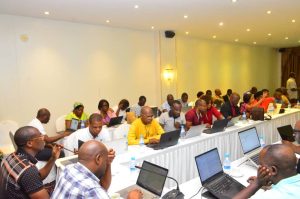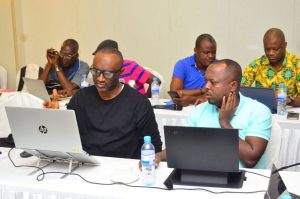Gabon is a country on the west coast of Central Africa. It is bordered by Equatorial Guinea to the northwest, Cameroon to the north, the Republic of the Congo to the east and south, and the Atlantic Ocean to the west. The country lies along the Equator and features lush rainforests, coastal plains, savannas, and mountainous regions.
-
Area: Approximately 267,668 square kilometers
-
Capital City: Libreville, located on the Atlantic coast
-
Climate: Equatorial and tropical—hot and humid year-round, with heavy rainfall in rainy seasons
Population:
As of 2025 estimates, Gabon has a population of about 2.4 million people. Despite its relatively small population, Gabon has a high urbanization rate, with over 85% of people living in cities—primarily in Libreville, Port-Gentil, and Franceville
Gabon is a Central African country with a diverse population and a health system facing challenges common to many developing nations, including fragmented data management and the need for stronger health information systems. The government has prioritized digital transformation in health to improve decision-making and service delivery.
DHIS2 Launch Overview
On December 6, 2024, Gabon marked a milestone in its health sector with the official launch of the DHIS2, presided over by Prime Minister Raymond Ndong Sima. This event signaled Gabon’s commitment to modernizing its national health information system, aiming for integrated, harmonized, and data-driven management across all health programs and administrative levels.


HISP Rwanda’s Role and Participation
HISP Rwanda, a recognized expert in DHIS2 implementation and a member of the global DHIS2 network led by the University of Oslo, was selected to provide technical assistance for this project. The collaboration began on April 29, 2024, with a six-month execution period. HISP Rwanda’s responsibilities included:
- Supporting the revitalization of Gabon’s National DHIS2 Technical Team.
- Reviewing and updating existing data collection tools (registers, forms, and surveillance instruments).
- Assisting with the acquisition and configuration of DHIS2 servers.
- Customizing DHIS2 (creating the health facility registry and metadata).
- Training national coordinators and technical teams on DHIS2 configuration, server management, and user support.
- Developing technical training materials and user manuals.
- Supporting national trainers and rolling out a nationwide DHIS2 training plan.
- Assisting with the deployment of DHIS2 at all administrative levels[1].
Project Implementation Phases
- Preparation and Assessment:
Stakeholder consultations and evaluation of existing health information tools and systems. An initial workshop validated key indicators and harmonized data collection tools across health programs, involving 74 participants from various health sectors[1]. - System Customization:
DHIS2 was tailored to Gabon’s specific needs through a participatory approach, ensuring alignment with updated data collection tools and local requirements. - Training and Capacity Building:
HISP Rwanda developed comprehensive training modules and conducted in-depth sessions for administrators, technical staff, and end-users. This included hands-on training in DHIS2 configuration, server management, and data analysis, using both in-person workshops and online platforms. - Deployment and Testing:
DHIS2 was installed on dedicated servers (development, training, and production) with robust security and backup protocols. The system underwent user acceptance testing, and dashboards were configured for key health indicators. - Cascade Training and National Rollout:
Regional and departmental teams received cascade training, ensuring DHIS2 adoption at all levels of the health system.


Key Results
- Gabon now has a functional, integrated digital health information system (DHIS2) covering all health programs and administrative levels.
- National and regional teams are equipped to manage, analyze, and use health data for better decision-making.
- The project strengthened local capacity for sustainable DHIS2 management and future system evolution[1].
Conclusion
The successful launch of DHIS2 in Gabon, with HISP Rwanda’s technical leadership, represents a major step toward a unified, evidence-based health system. This foundation enables Gabon to respond more effectively to public health challenges and to leverage data for continuous improvement in health outcomes.